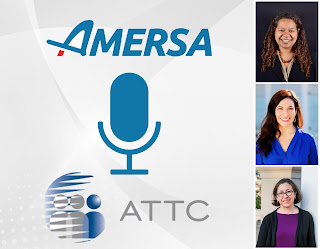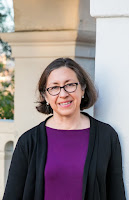Mat Roosa, LCSW-R
NIATx CoachHow do we know if a change is an improvement?
Change teams and change leaders ask this question frequently. It often refers to the measures and data they’re using to monitor change results.
But there is another and perhaps more meaningful way to ask this question: How do our customers know that a change is an improvement?
The number one NIATx Principle asks us to understand and involve the customer. The most important way to involve customers is to make sure that they are experiencing the improvements resulting from a change.
Collecting quantitative data on the change is essential, but collecting qualitative data about the customer/client/ patient experience is also essential. For example, do the results of the change create a real impact that the customer feels? Does the change make the service process more satisfying, comfortable, or useful to the people we are trying to serve?
Quality customer experience by design
Most of us try to gather customer feedback to help us to improve our services. Surveys and focus groups of service recipients can be excellent strategies for determining the impact of a change that we have implemented. Typically this feedback is gathered after the implementation to support efforts to improve a flawed process further.
Wouldn’t it be better to design the process to ensure quality in the customer experience from the beginning?
Wouldn’t it be better to gather customer experience data before developing change projects?
The best way to ensure that the customer feels the change is to engage the customer on the front end of the change development process. So what can we do to ensure that we include the customer’s values from the beginning of the change process?
Include customers on the change team
“Nothing about us without us” has been a powerful refrain in the behavioral health peer recovery movement. These words underscore the importance of including people who are receiving services or support in all decisions related to that service. Perhaps the best way to do this in a change project is to include customers on the change team. Many organizations that have adopted the NIATx model have found that a change team that consists of both service recipients and service providers generates change ideas with greater impact.
Use the “So What?” test
The history of product design is filled with clever products that excited designers but left customers saying, "So what?” Again, if we return to the NIATx principle number one, we need to know and understand the customer to develop services or make service improvements that create a strong positive customer response.
Use customer impact criteria to select a strategy
In the NIATx model, we often use Nominal Group Technique (NGT) to brainstorm change strategies to address our chosen aim. Typical NGT uses a simple return on investment criteria to select a strategy from the list generated:
What is the level of resource required to implement the strategy, and what are the expected results?
We can add to this criteria a question about customer impact to ensure that the selection process includes these critical elements: Which of these strategies will have the greatest desired impact on the customer's experience? As described above, including customers on the change team is a great way to ensure that the change project addresses customer values and priorities. In addition, customers participating in the NGT process will generate ideas that focus on customer experience.
To believe that the customer is “always right” is to believe that the customer is the first and best source for improvement ideas. Regardless of the industry or service type, customers/ clients/ patients vote with their feet. If you engage customers in building and improving your service, they will keep coming back, and you will be able to deliver the services, care, and supports that will make a difference in their lives.
About Change Project 911
Change Project 911 is a monthly blog post series covering common change project barriers and how to address them. Has your change project hit a snag that you’re not sure to tackle? Share your issue in the comments section below, or email Change Project 911 at matroosa@gmail.comWe’ll offer solutions from our team of change project experts!
About our Guest Blogger
Mat Roosa was a founding member of NIATx and has been a NIATx coach for a wide range of projects. He works as a consultant in quality improvement, organizational development and planning, and implementing evidence-based practices. His experience includes direct clinical practice in mental health and substance use services, teaching at the undergraduate and graduate levels, and human service agency administration. You can reach Mat (Change Project SOS) at matroosa@gmail.com.






















